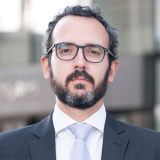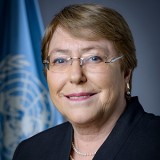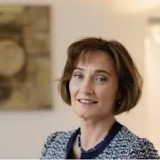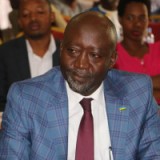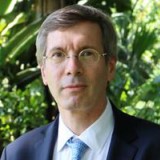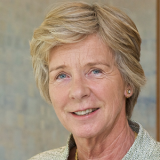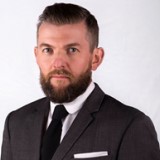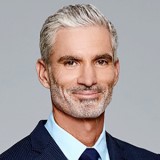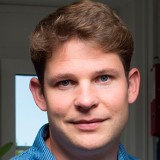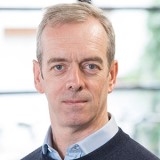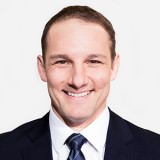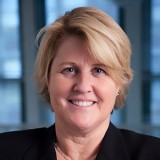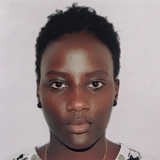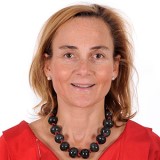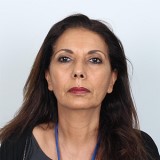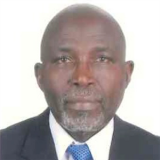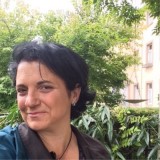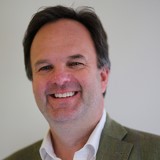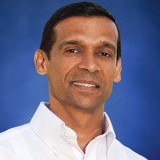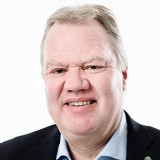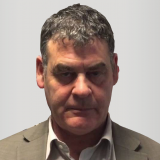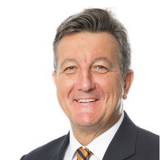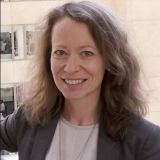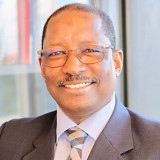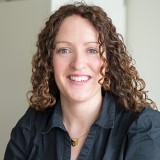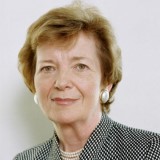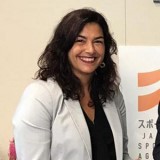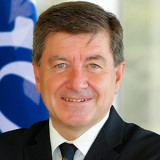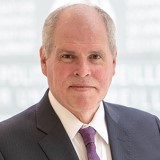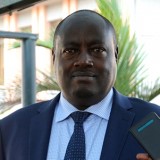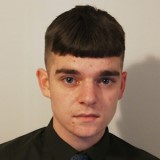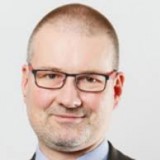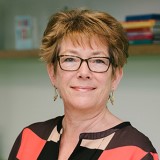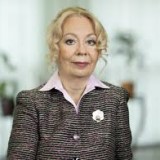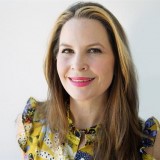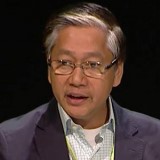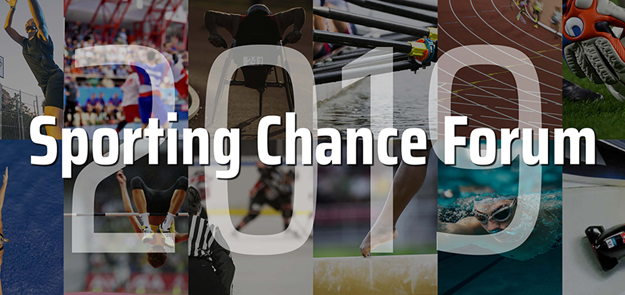
Speakers
Gigi Alford [Director, Sport and Human Rights, World Players Association; Coordinator, Sport and Rights Alliance]
As Director of Sport and Human Rights for UNI Global Union’s World Players Association, Gigi Alford leads the ‘Humanity’ pillar of World Players’ vision ‘to champion the dignity of the player and the humanity of sport’. She also coordinates the Sport & Rights Alliance (SRA), a global coalition of leading NGOs and trade unions committed to embedding human rights in the world of sport. In this capacity, she represents the SRA voice for affected groups on the governance committee of the Centre for Sport and Human Rights. Previously, Gigi served in the U.S. State Department’s Bureau of Democracy, Human Rights, and Labor, where she facilitated the first Sporting Chance Forum in Washington, DC.
Thiago Gurjão Alves Ribeiro (Senior Technical Officer, International Labour Organization)
Thiago Ribeiro is a Labour Prosecutor, working with forced labour and child labour issues at the Labour Prosecution Service (MPT) of Brazil since 2010. Currently he is working as Senior Technical Officer for the ILO Branch on Fundamental Principles and Rights at Work at Headquarters in Geneva. He was Head of International Affairs and Coordinator of the Working Group for Prevention and Attention for Victims of Forced Labour at the MPT/Brazil (2016/2018). He is a former Labour Judge (Labour Court of Rio de Janeiro, Brazil – 2009/2010).
Thiago studied Law and Social Communication and he is a specialist in Civil and Labour Procedural Law.
Hakeem Al-Araibi [Professional football player and human rights defender]
Hakeem al-Araibi is an Australian footballer of Bahraini descent. He fled from Bahrain to Australia in 2014 following allegations that he vandalised a police station in Bahrain. Al-Araibi had spoken out against the persecution and torture of other footballers who had demonstrated against the ruling regime during the Bahraini uprising of 2011. Al-Araibi denied the allegations saying he had been playing in a televised football match when the alleged attack took place. But his detention was extended for 45 days, during which he says security forces tried to torture a confession out of him.
After receiving refugee status in Australia, he was arrested on arrival in Thailand in November 2018 while on his honeymoon on the basis of an Interpol "red notice" incorrectly issued by Bahrain, and was held there pending deportation to Bahrain, which he opposed. There was a campaign urging Thailand not to extradite him until 11 February 2019, when the Thai Office of the Attorney-General dropped the extradition case against him at Bahrain's request. He was returned to Australia the next day and became an Australian citizen in the weeks thereafter.
Michelle Bachelet Jeria [UN High Commissioner for Human Rights]
On September 1, 2018 Michelle Bachelet assumed her functions as the United Nations High Commissioner for Human Rights. The Office of the High Commissioner for Human Rights was established in 1993 and Ms. Bachelet is the seventh Commissioner.
Ms. Bachelet was elected President of Chile on two occassions. She was the first female President of Chile. She served as health Minister as well as Chile's and Latin America's first female Defense Minister.
During her presidential tenures, she promoted the rights of all but particularly those of the most vulnerable. Among her many achievements, education and tax reforms, as well as the creation of the National Institute for Human Rights and the Museum of Memory and Human Rights stand out, as do the establishment of the Ministry of Women and Gender Equality, the adoption of quotas to increase women's political participation, and the approval of Civil Union Act legislation, granting rights to same sex couples and thus, advancing LGBT rights.
Since the early 1990's, Ms. Bachelet has worked closely with many international organizations. In 2010 she chaired the Social Protection Floor Advisory Group, a joint International Labor Organization (ILO) and World Health Organization (WHO) initiative, which sought to promote social policies to stimulate economic growth and social cohesion.
In 2011, she was named the first Director of UN Women, an organization dedicated to fighting for the rights of women and girls internationally. Economic empowerment and ending violence against women were two of her priorities during her tenure. She has recently pledged to be a Gender Champion, committing to advance gender equality in OHCHR and in internaitonal fora.
After finishing her second term in March 2018, she was named Chair of the Parnership for Maternal, Newborn and Child Health, an alliance of more than 1000 organizations in 192 countries from the sexual, reproductive, maternal, newborn, child and adolscent health communities. As Co-Chair of the High-Level Steering Group for Every Woman Every Child, Ms. Bachelet launched Every Woman Every Child Latin America and the Caribbean, the first platfor for tailored, regional implementation of the EWEC Global Strategy.
Michelle Bachelet has a Medical Degree in Surgery, with a specialization in Pediatrics and Public Health. She also studied military strategy and Chile's National Academy of Strategy and Policy and at the Inter-American Defense College in the United States.
Pascale Baeriswyl [Secretary of State, Switzerland]
The State Secretary and head of the Directorate of Political Affairs is the first point of contact for the Federal Council in matters of foreign policy. She directs the conceptual development, coordination and planning of foreign policy and oversees the reports submitted to the political authorities.
If necessary, the State Secretary represents the Head of Department at meetings of the foreign policy commissions in the National Council and Council of States. She also maintains regular contact with her peers abroad or in Berne.
The key dossiers include cooperation with the United Nations (UN) and security and peace policy.
Pascale Baeriswyl has been State Secretary since 1st December 2016.
Festus Bizimana [Vice-President, National Olympic Committee of Rwanda]
Festus Bizimana is the Vice President of the Rwanda National Olympic committee since 2017, in charge of National sports feseratuins. Prior to that he was the Vice chair of the Rwanda cycling federation for 10 years. Festus has also been member of the Francophone Cycling Union ( a French speaking countries cycling association) for 4 years ( 2014-2018). A former Rwandan diplomat ( 1998-2006) , Festus works as well for the US state department at the US mission in Kigali since 2006. Festus holds a MA in Diplomatic studies and Bachelor in Political history
François Croquette [Ambassador at large for Human Rights Issues, Government of France]
Born in 1966 in Paris, François Croquette graduated from Sciences-Po Paris and the LSE.
He joined the French Ministry of Foreign Affairs in 1988 and began his career in Kinshasa before following, in the Africa Department, the dismantling of apartheid. He was part of the European Election Observation Mission in South Africa in 1994. As part of a diplomatic exchange program, he was Head of the Horn of Africa section at the Foreign and Commonwealth Office in London (2002-2003).
He took part in the reform of French Development policy, as chief of staff of the Minister for Development and Francophonie (2000-2002) and then as Director of the Private Office of the Minister for International Development (2013-2014).
François Croquette was also counsellor at the French Embassy in Moscow (where he followed the Caucasus and Chechnya between 1996-1999) and in London (2003-2006).
He was head of the Northern America Department (2010-2011), before becoming displomatic advisor to the President of the French Senate (2011-2013). Lastly, he held positions in the field of cultural cooperation, as Cultural Counsellor in Montreal (2006-2010) and then as Cultural Counsellor and director of the French Institute in London (2014-2017).
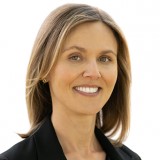
Rachel Davis [Vice President & Co-Founder, Shift]
Shift is the leading center of expertise on the UN Guiding Principles on Business and Human Rights. Rachel has over a decade of experience in business and human rights, having served as senior legal advisor to Professor John Ruggie, the former Special Representative of the UN Secretary-General, in which role she helped to develop the UN Guiding Principles. Rachel leads Shift’s work with sports organizations, including supporting the IOC to develop a strategic framework on human rights, a project she is conducting jointly with Prince Zeid Ra’ad Al-Hussein. In her personal capacity, Rachel chairs the independent Human Rights Advisory Board for global football body FIFA. Rachel is also a Senior Program Fellow with the Corporate Responsibility Initiative at Harvard Kennedy School, and is a graduate of Harvard Law School and the University of New South Wales in Sydney.
Maud de Boer-Buquicchio [UN Special Rapporteur Sale and Sexual Exploitation of Children]
Maud de Boer-Buquicchio (the Netherlands), a lawyer by education, was appointed as UN Special Rapporteur on the sale of children, child prostitution and child pornography in May 2014. She is also President of the European Federation for Missing and Exploited Children (“Missing Children Europe”). Throughout her professional career, Maud has focused on children’s human rights. In 1969, she joined the Council of Europe where she worked in different capacities in the human rights protection mechanism set up under the European Convention on Human Rights. In 1998, she was elected Deputy Registrar of the European Court of Human Rights. Between 2002 and 2012, she served as Deputy Secretary General of the Council of Europe, the first woman elected to this post. In that capacity she spearheaded three Council of Europe key Conventions, namely, the Convention on action against trafficking in human beings, the Convention on the protection of children from sexual exploitation and sexual abuse, and the Convention on preventing and combating violence against women and domestic violence.
In her capacity as UN Special Rapporteur she dedicated thematic reports to, inter alia, vulnerabilities of children to sale, trafficking and other forms of exploitation in situations of conflict and humanitarian crises; sexual exploitation of children and Information and Communication Technologies (ICTs); illegal adoptions, and commercial surrogacy and the sale of children.
Oliver Dudfield [Head of Sport for Development and Peace, Commonwealth Secretariat]
Oliver Dudfield is the Head of Sport for Development and Peace at the Commonwealth Secretariat, the intergovernmental agency that provides policy guidance, technical assistance and advisory services to Commonwealth member countries. The Sport for Development and Peace Section supports Commonwealth countries to strengthen policy and strategy aimed at promoting and protecting the contribution of sport to sustainable development. Over his career Oliver has worked with multiple UN and intergovernmental agencies, national governments, NGOs and sporting organisations on Sport for Development and Peace policy design, strategy and partnership projects. Prior to joining the Commonwealth Secretariat, he was the General Manager at Vicsport, the leading body for sport and active recreation in Victoria, Australia and was previously the International Development Manager at UK Sport. He started his career as a basketball coach, working in the national systems in Australia and New Zealand.
Craig Foster [Human Rights Advocate and former international footballer]
Craig Foster is an Australian retired Soccer player who, as of February 2019, is a sports analyst for the Special Broadcasting Service (SBS) in Australia. Foster represented Australia at under 16 level reaching the quarter finals at the 1985 FIFA U-16 World Championship in China, and played for the Australian national football team from 1996 to 2000, earning 29 caps and scoring nine goals.
More recently, Foster has become involved in human rights advocacy and has been a human rights and refugee ambassador for Amnesty International. He has often used his position as presenter and chief football analyst at SBS to criticise unethical practices in the game. Foster was vocal in campaigning on behalf of Bahraini footballer Hakeem al-Araibi, who was granted protection as a political refugee in Australia in 2014 but was detained upon arrival in Thailand in November 2018 while on his honeymoon with his wife owing to an Interpol red notice put out by Bahrain. Foster led international efforts to secure al-Araibi's release including travelling to Switzerland to present a petition with more than 50,000 signatures demanding the release of the detained footballer to FIFA, spending time in Thailand speaking to al-Araibi's legal team and visiting al-Araibi in prison. Hakeem was released from prison on 11 February 2019.
Andreas Graf [Human Rights Manager, FIFA]
Andreas coordinates FIFA's work to embed respect for human rights throughout the organisation's operations and relationships.
He holds a PhD in Political Science in which he assessed how international business and human rights norms shape Swiss CSR policy. Andreas also holds Masters degrees in International Relations from the Graduate Institute of International and Development Studies in Geneva, and in Peace and Security Studies from the Institute for Peace Research and Security Policy in Hamburg.
Before joining FIFA in September 2016, Andreas worked at the Business & Peace Programme of the Swiss peacebuilding organization SwissPeace. In that capacity, he supported companies in implementing conflict-sensitive business practices, worked with Swiss government entities in the development of the Swiss national action plan on business and human rights, and supported the UN Working Group on Business and Human Rights in its work on national action plans. Andreas lived and worked in various countries around the world, including in Burundi, Mongolia, Egypt and Palestine.
Steve Gibbons [Director, Ergon Associates]
Steve is a co-founder of Ergon and has over 25 years’ experience in labour and human rights issues.
He has consulted to major international institutions, multinational companies, not-for-profit organizations and trade unions, including the ILO, World Bank Group, EBRD, the European Commission, London 2012, the ETI, UK Department for International Development and OSCE. He has worked in more than 20 countries across sectors including oil and gas, mining, retail, agribusiness, finance, and clothing and merchandise supply chains.
Steve has particular expertise in facilitating stakeholder dialogue and in devising and managing grievance and dispute resolution mechanisms in line with the UN Guiding Principles, including for the London 2012 Olympic Games. He is a expert member of the Independent Complaints Mechanism of DEG and FMO.
Before Ergon, Steve was head of employment law at Incomes Data Services, the UK’s largest labour relations research centre. He is a UK-qualified lawyer, a regular conference speaker and the founder of the UK’s leading online training company for lawyers, CPDCast®.
David Grevemberg [Chief Executive, Commonwealth Games Federation]
David Grevemberg CBE is Chief Executive of the Commonwealth Games Federation (CGF), the organisation responsible for the Commonwealth Games, Commonwealth Youth Games and numerous other initiatives. He provides inspirational leadership of the CGF and ensures the development and delivery of strategic and operational plans consistent with the CGF vision, the CGF’s strategic plan (Transformation 2022) and the CGF Constitution and policies.
David joined the CGF from the Glasgow 2014 Commonwealth Games where he was Chief Executive of the Organising Committee and oversaw the hugely successful multi-sport event for Scotland. He was previously the Executive Director of Sport and International Federation Relations at the International Paralympic Committee (IPC) headquartered in Bonn, Germany. A former competitive wrestler, during his career he has also served as a coach, athlete agent, team administrator, consultant and Board member.
Mary Harvey [Chief Executive, Centre for Sport and Human Rights]
Mary Harvey is an accomplished and innovative sports governance and sustainability executive with 15+ years leading worldwide initiatives to achieve societal change and gender equity through sports. Mary’s initiatives have been launched and implemented globally through a variety of organisations, having sustained impact in the empowerment of girls and women, inclusion of marginalised groups, stewardship of the environment and achievement of health and educational objectives.
Current Work
As Chief Executive, Mary is spearheading the development of the newly established Centre for Sport and Human Rights, ensuring its successful transition from an interim structure to a fully independent entity by 2020. This includes oversight for the Centre’s vision, including facilitating the deliberations of the Centre’s multi-stakeholder Advisory Council, operational and financial management, stakeholder engagement, and good governance.
Previous Experience
A former senior executive at FIFA (2003-2008), Mary became involved in the reform process at FIFA by launching the #WomeninFIFA campaign with Australian Moya Dodd. The campaign was successful in achieving gender inclusion as a core tenet of the reforms passed in 2016.
Mary has served as a sport envoy for the US State Department’s Sports Diplomacy Division on several occasions, including missions to Iraq, Jordan, Canada and Mexico. On these missions, the key objective was engaging key stakeholders via sport outreach to promote acceptance and integration of diverse groups. Mary also serves as the Vice Chair of the Board of Directors of the Green Sports Alliance, an organisation dedicated to leveraging the cultural and market influence of sports to inspire sports leagues, teams, venues, their partners and millions of fans to embrace renewable energy, healthy food, recycling, water efficiency, species preservation, safer chemicals and other environmentally preferable practices.
A lifelong athlete, Mary enjoyed an 8-year career with the US Women’s National Soccer Team, winning the inaugural FIFA Women’s World Cup in 1991 and Olympic Gold in 1996. Mary appeared, with her teammates, in the HBO sports documentary, “Dare to Dream.” Mary holds an MBA from the Anderson School at UCLA and a BS from UC Berkeley.
Conal Heatley [Business and Operations Manager, Commonwealth Sport Northern Ireland]
Conal has worked within Commonwealth Sport in Northern Ireland over the last decade and previously held the post of Secretary General at Triathlon Ireland. He was a key member of the team that successfully bid to host the Commonwealth Youth Games in Belfast in 2021. The Games were to have been overseen by the NI Human Rights Commission to ensure that rights were respected and promoted in all aspects of delivery. While hosting rights were lost following the collapse of government in Northern Ireland, work continued on the subject. Partnering with colleagues in Rwanda, a Declaration on Sport and Human Rights was drafted as a simple ‘corporate conscience’ for sporting bodies. Conal chairs the Northern Ireland Forum for Sport and Human Rights which brings together local sporting and Rights bodies to share experiences and good practice.
Iris Hugo-Bouvier [Football and Social Responsibility, UEFA]
Naickey Ijimbere [Programs Manager, National Olympic Committee of Rwanda]
IJIMBERE Naickey has been working at the Rwanda National Olympic and Sports Committee for 5 years as the Programs Manager.
She works with athletes, coaches and sports managers on a daily basis to improve their wellbeing throughout different activities.
These can be separated in five categories: i) Athletes (from preparation to participation to major competitions) ii) Coaches (capacity development for groups of coaches or individuals) iii) NOC Management and Knowledge sharing iv) Olympic Values v) Special Programs and Forums
IJIMBERE Naickey was Chef de Mission for the 12th African Games in Morocco. She practiced basketball, volleyball and swimming in Secondary school. She fluently speaks English, French, Kinyarwanda and Kirundi
Belén Lara Martínez [Head of International Relations High Council for Sport of Spain]
A high level public official in the public administration in Spain for more than 20 years. During the last 10 years she has worked in the Higher Sports Council (CSD) of the Government of Spain as responsible for the area of Cooperation and International Relations.
In this area she has coordinated his organization of more than 10 International Seminar on issues of inclusive sport, women and sport, protection of children, governance, fight against fraud, promotion of healthy sports habits among others mainly in the Latin American, all of them linked to the 2030 Agenda
In that same line she coordinates the Iberomaericana Women's and Sports Network.
Regarding the issue of protection of children and adolescents in sports as part of the Cabinet of the Secretary of State for sport participates in different levels of responsibility in the international and institutional sphere coordinating different programs at national e international levels all of them included in the hastag #abusofueradejuego.
She is part of the team that leads the Erasmus plus Sport I protect project, she takes part at expert group of the Council of Europe Pro Safe Sport and has participated in the team that developed Guides for the protection and prevention of sexual harassment in sport carried out jointly with UNICEF. In the same way, she coordinated the Ibero-American Seminar on protection of children in sport Organized in Guatemala last October, with the participation of 14 countries of the region
Since last August she took on the responsibility of Head of Projects Area of the CSD and among them she became the Director of the high-level athlete service program (PROAD) https://proad.csd.gob.es/
Since August, he assumes responsibility for the direction of the program of attention to the high level athlete as well as the coordination in the development program of the 2030 agenda both at the CSD level and the Ibero-American Sports Council.
Kathryn Leslie [Senior Child Safeguarding and Protection Manager, FIFA]
Kathryn Leslie, an Irish national, took up the role as FIFA’s Senior Child Safeguarding and Protection Manager in January 2019. She is responsible for developing and overseeing the FIFA Guardians Programme for Member Associations to help raise safeguarding standards within football.
Prior to that, Kathryn worked at the United Nations for ten years at the global and national level. With the Special Representative of the UN Secretary-General on Violence against Children in New York, she worked on a number of global initiatives and partnerships to promote children’s rights and international standards for child protection. Among these included the 2030 Agenda for Sustainable Development and the International Safeguards for Children in Sports. She was also responsible for strategic partnerships and technical support to regional organizations and institutions working to end violence against children in Africa, in collaboration with treaty bodies and regional human rights mechanisms.
Previously, Kathryn worked for UNICEF in Tanzania where she oversaw and developed the Government’s first multi-sector National Plan of Action to End Violence against Children to guide the national response to Tanzania’s Violence against Children Survey (VACS). She has worked with Irish Aid in the Department of Foreign Affairs on a number of human rights issues, as well as with NGO’s SERVE (Ireland) and World Vision (Bosnia) on children’s rights and child protection across multiple sectors.
She has a Master of Arts in Development Studies and is a Bachelor of Political Science in Government and Public Policy (human rights, social policy, public law).
Siret Luik [Deputy Secretary General of World Archery]
Najat Maalla M’jid [UN Special Representative of the Secretary General- Violence Against Children]
Dr. M'jid, a medical doctor in paediatrics, has over the last three decades devoted her life to the promotion and protection of children’s rights. She was Head of the Paediatric Department and Director of the Hay Hassani Mother-Child hospital in Casablanca. Dr. M'jid is a member of the Moroccan National Council on Human Rights and founder of the non-governmental organisation Bayti, the first programme addressing the situation of children living and working in the streets of Morocco.
From 2008 to 2014, she served as United Nations Special Rapporteur on the Sale of Children, Child Prostitution and Child Pornography.
Dr. M’jid also works as an Expert-Consultant for national and international projects, strategies and policies relating to child rights’ promotion and protection. She has participated in the development of national policies on the protection of the child, and has worked with several governments, non-governmental and inter-governmental organisations. She also works as a lecturer in Moroccan and international universities on child rights’ protection, promotion, programming and monitoring, as well as social and development policies. A member of several regional and international non-governmental organisations and networks working for children’s rights, Dr. M’jid is also involved in the training of social workers, law enforcement, teachers, judges, and medical staff.
Dr. M’jid holds a Doctorate in general medicine from the University of Rabat, a specialization in paediatrics and neonatology from the University of Bordeaux II and a Master of Human Rights from the Human Rights Institute, Geneva. She is the recipient of numerous awards and honours for her strong commitment to protecting the rights of the child
Olawale Maiyegun [Special Advisor, CSHR and Former Nigerian Diplomat and Former AU Director of the Department for Social Affairs]
Olawale Maiyegun is a Public Policy expert, a former Ambassador and career Diplomat in the Nigerian Foreign Service. He is also former Director, Department of Social Affairs, African Union where he provided leadership and supervised the formulation and implementation of right-based legal and policy instruments to promote and protect the rights and health of women, children, young people, older persons, persons with disabilities, populations at risk and minority groups.
His current research focus is on the intersection of human rights and sport in Africa. Of particular interest is the migration and trafficking of young African athletes, which is the subject of his work to document human rights risks and collect of accurate data for the development of evidence-based mitigation and remedy policies.
Maiyegun is assisting the Centre for Sport and Human Rights with developing the research base for its human rights and sport strategy in Africa.
Zeina Mina [Directrice du Comité international des Jeux de la Francophonie]
Ms. Zeina MINA is the Dean of the Faculty of Sport Sciences at Antonine University in Lebanon since 2009. She holds a PhD in Physical and Sports Activities Science and Technology. After a high-level sporting career, during which she participated in the Los Angeles 1984 Olympic Games, she decided to focus her efforts on growing and developing sports in Lebanon.
She was advisor to the Lebanese Minister of Youth and Sports, became a member of the National High Committee for the 6th edition of the francophone Games that took place in Beirut in 2009, and managed the Sports Commission.
In 2008, she created a training performance evaluation center in Lebanon – "Performance First" - an innovative structure in the world of performance sport.
She introduced a degree in sports at the Lebanese Ministry of Education and created the school "Sports academy school", which welcomes youths from 13 years-old and helps them manage studies and training at the same time.
She was recruited then by the Comité international des Jeux de la Francophonie (Committee for the organisation of the francophone Games) and participated in the organisation of the Nice 2013 and Abidjan 2017 Games.
Elda Moreno [Head of the Children's Rights and Sport Values Department at the Council of Europe]
Elda Moreno is responsible for the European programmes for the protection of children’s rights, the promotion of human rights in and through sports and the fight against doping, match fixing and violence in sport. She counts 25 years of experience of intergovernmental cooperation developing, promoting and monitoring the implementation of international legal standards, policies and strategies in the fields of children’s rights, gender equality, violence against women and environmental protection.
Between 2006 and 2011, Elda Moreno designed and coordinated the Council of Europe transversal Programme “Building a Europe for and with Children”. She triggered the development of several children’s rights standards in the fields of justice, health, social services and child participation. Her contribution to ending violence against children includes the development of major campaigns such as “Raise your hand against smacking” (against corporal punishment), “One in Five” (to prevent sexual abuse and exploitation) and “Start to Talk” (to end sexual abuse in sport). From April 2014 to October 2016, Elda Moreno was the Director of the Office of the Special Representative of the United Nations Secretary General on Violence against Children in NY.
More information:
John Morrison [Chief Executive, Institute for Human Rights and Business]
John has been Chief Executive Officer of the Institute for Human Rights and Business (IHRB) since its formation in 2009 under the leadership of Mary Robinson (the former President of Ireland and former UN High Commissioner for Human Rights).
John has advised a number of governments, intergovernmental organisations, and businesses on human rights and wider issues of sustainability, development, and international affairs. His most recent book is "The Social License”, published by Palgrave MacMillan in 2014, and he has published widely on issues relating to corporate responsibility, human rights, refugee protection, and human trafficking.
John also sits on the UK Foreign Secretary's Human Rights Advisory Group and has been a Harkness Fellow to the USA. In 2017, he was named one of the 100 most influential people worldwide on the issue of eliminating modern day slavery.
Before IHRB, John directed the Business Leaders Initiative on Human Rights (2003-9), was Head of Public Affairs for The Body Shop International (2000-3), and before this worked in the field of refugee protection (in relation to the former Yugoslavia and on issues of human trafficking).
Mark Mungal [Director and co-founder of the Caribbean Sport and Development Agency]
Before taking up responsibilities as Regional Coordinator of the Australian Caribbean Community Sport Development Program in 2003, Mark served as a Teacher Educator at the Physical Education Department at Corinth Teachers’ College and a lecturer at the Sport and Physical Education Department of the University of the West Indies and played a lead role in the development of academic programs in sport, physical education and sport for development at the University of Trinidad and Tobago, the University of the West Indies and the Regional Sports Academy (Suriname).
Mark has served as a National Youth Coach, Technical Director and Sport Administrator in the sport of volleyball and has served on several international, regional and national agencies over the years, including the Commonwealth Advisory Body on Sport (CABOS), the CARICOM Physical Education and Sport Advisory Committee and the CARICOM Task Force for Child Rights and Child Protection. Mark is presently serving on the International Safeguarding Children in Sport Advisory Board, Safe Sport International Advisory Committee, the UNICEF /Barcelona Foundation Sport for Development for Children Working Group, the Trinidad and Tobago NCD Alliance and the First Citizens Sports Foundation.
Email: [email protected]
Karl-Erik Nilsson [First Vice-President, UEFA]
Karl-Erik Nilsson was a teacher in the region of Kalmar’s schools before going into politics. He served as mayor of his home town, Emmaboda, from 1995 until 2006, when he left active politics. His first post in football administration was at local club Lindås BK. In the 1980s, Nilsson started out as a referee, and went on to officiate in the UEFA Champions League and at various FIFA and UEFA competitions.
Nilsson was elected Swedish Football Association (SvFF) president in March 2012. Before that, he was a member of the SvFF board, as well as president of the Bohuslan regional association, and also served on the board of IK Oddevold, a club in his new home town Uddevalla. He was tournament director at the 2009 UEFA European Under-21 Championship and had several other UEFA assignments, working as a referee observer and mentor for younger officials
In April 2017, Nilsson was elected to the UEFA Executive Committee at the Helsinki Congress, and became UEFA first vice-president.
Tim Noonan [Director, Campaigns and Communications, International Trade Union Confederation]
Tim Noonan is Director of Campaigns and Communications at the International Trade Union Confederation, the global organisation representing 180 million workers from 333 affiliated organisations in 162 countries.
He leads the ITUC’s work on global sports events and their impacts on workers’ rights and human rights in general. This has included campaigning to end the exploitation of child labour and other workers’ rights violations in the production of footballs and other licensed merchandise in the 1990’s, coordinating ITUC’s activities within the Play Fair campaigns around Olympics and FIFA World Cup events, and most recently concerning the situation of migrant workers involved in the infrastructure programme in the lead up to the planned 2022 association football World Cup in Qatar.
Gregory Nott [Director, Norton Rose Fulbright South Africa Inc.]
Greg is the head of Norton Rose Fulbright's Africa team based in Johannesburg.
Global law firm Norton Rose Fulbright is advising Caster Semenya in her legal case before the Court of Arbitration for Sport in Lausanne challenging the “Eligibility Regulations for Female Classification” of the International Association of Athletics Federation (IAAF). Caster Semenya is the two-time world champion and two-time gold medallist in the women’s 800 metre event.
Greg has been in practice for over thirty years. He has had a wealth of human rights law as an activist lawyer in the 80s during the turbulent times in South Africa representing groups and individuals in their fight for freedom.
As managing partner of Dewey LeBouef, he represented Caster Semenya ten years ago in her engagement with the IAAF. Having forged a friendship in the time he represented Caster he went onto represent her until her most recent challenge in Switzerland.
Greg is married to Ann-mary an Occupational Therapist and has three sons including a Rhodes Scholar and Oxford Blues water polo player.
Moira Oliver [Head of Policy & Chief Counsel, Human/Digital Rights, BT plc]
Moira Oliver was appointed Head of Policy and Chief Counsel, Human/Digital Rights at BT in July 2015. She is responsible for BT’s human rights programme in the UK and internationally. Previously, as BT’s Head of Legal, Corporate Responsibility & Environment, she led BT Group’s UK and international legal teams advising on environmental issues and charity engagement. Moira started her career as a solicitor at the law firm Slaughter and May, specialising in corporate and banking advisory work. She holds a degree in English Language and Literature from the University of Oxford, and is a qualified Solicitor.
Moussa Oumarou [ILO's Deputy Director-General for Field Operations & Partnerships]
Mr Oumarou completed his secondary studies in his home country, Niger, and from 1978 undertook advanced studies in France. He holds diplomas from the Institut Universitaire de Technologie de Béthune, the Ecole Normale Nationale de Lyon and the Ecole Normale Supérieure de Cachan from which he graduated as Inspector of Technical Studies and Vocational Training.
Before joining the ILO, Mr Oumarou occupied many positions in teaching and in public administration which led him to occupy several positions of responsibility such as that of Inspector in Technical Studies and Vocational Training and Secretary-General of the Ministry of National Education. Following this, he was appointed Minister of Public Services, Labour, Employment and Social Security from 1997 to 1999. In these various positions of responsibility he was, in particular, a member of the Inter-Ministerial Committee responsible for negotiating with the International Financial Institutions (IFI) in the context of economic and social reforms, and President of several committees instructed to negotiate on behalf of the Government with the social partners. It is during this period that he had the texts adopted for the establishment of a National Commission of Social Dialogue (one of the first in Africa). He also proceeded to the revision of the General Statutes of Public Service and implementing supplementary regulations of law on the Labour Code.
After leaving the Government in Niger, Mr Oumarou started working for the ILO, first as a consultant for social dialogue, then as coordinator of a national project for the promotion of the Declaration on Fundamental Principles and Rights at Work. He then became Chief Technical Advisor of the Regional Programme for the Promotion of Social Dialogue in French-speaking Africa. In 2006, he joined the ILO headquarters where he served as Senior Labour Administration and Labour Inspection Specialist.
In 2011 he was appointed Director of the Industrial and Employment Relations Department and, during this period, also assumed the duties of the Executive Director of the Social Dialogue Sector.
He became the Director of the Governance and Tripartism Department in 2013 and subsequently Deputy Director-General for Field Operations and Partnerships on 1 January 2018.
He has authored several publications on social dialogue and labour administration.
His career earned him the decoration of Chevalier des Palmes Académiques (Academic Order) and Chevalier de L’Ordre National de Niger (National Order of Niger).
Andrés Peñate [Vice President of Regulatory & Public Affairs, Anheuser-Busch InBev]
Andrés is Global Vice President, Regulatory & Public Policy, Anheuser-Busch InBev. He is a Colombian citizen and received a degree in Economics from Universidad de los Andes in Bogotá and a Master’s degree in Latin American Studies from Oxford University. Andrés has more than 12 years experience in the beer sector and previously served as Corporate Affairs Vice President for SABMiller Latin America. He previously held various positions in the Colombian Government, including Director of the civilian intelligence agency of the country, and Vice-Minister of Defense.
Áine Power [Deputy Legal Director, Fédération Equestre Internationale]
Áine Power is Deputy Legal Director of the Fédération Equestre Internationale (International Equestrian Federation), the international governing body for equestrian sports recognized by the International Olympic Committee.
Áine is an Irish qualified lawyer and has been working in international sports law for almost 10 years. Before specializing in sports law, she worked as a corporate lawyer in Dublin, Ireland. She holds an International Master in Management, Law and Humanities of Sport from the prestigious FIFA Master programme. Áine joined the FEI in March 2014 and has been very involved in the FEI’s safeguarding programme. She was involved in the drafting of the FEI’s Safeguarding Policy Against Harassment and Abuse and is one of the three members of the FEI’s dedicated Safeguarding Team.
Mary Robinson [Chair of the Elders; Chair of the Centre for Sport and Human Rights]
The first woman President of Ireland and former UN High Commissioner for Human Rights, Mary Robinson is a passionate, forceful advocate for gender equality, women’s participation in peace-building and human dignity. Mary has been a member of The Elders since the group was founded in 2007, and was appointed Chair of The Elders in November 2018.
She heads the Mary Robinson Foundation – Climate Justice, a centre for education and advocacy on sustainable and people-centred development in the world’s poorest communities. She served as the UN Secretary-General's Special Envoy for Climate Change from July 2014- December 2015, which saw the successful conclusion of the COP21 Climate Summit and the historic Paris Agreement on Climate Change. In May 2016, Robinson was appointed as the UN Secretary-General’s Special Envoy on El Niño and Climate, along with Macharia Kamau of Kenya, to focus the world’s attention to meet the urgent challenges posed by extreme weather events on the poorest and most vulnerable communities.
As UN High Commissioner for Human Rights (1997-2002), Robinson integrated human rights into the United Nations system and became renowned as an outspoken voice dedicated to investigating and exposing human rights abuses across the world. She founded Realizing Rights: The Ethical Globalization Initiative, which aimed to put human rights standards at the heart of global governance and to ensure that the needs of the poorest and most vulnerable are addressed on the global stage.
Robinson was elected Irish President in 1990 and served for seven years as a principled and transformative leader who continued to fight for equality and women’s rights throughout her time in office. A firm believer in dialogue and reconciliation, she broke taboos by being the first Irish head of state to make official visits to Britain, as well as regularly visiting Northern Ireland. She was the first head of state to visit Somalia following the crisis there in 1992, and brought global media attention to the suffering of Rwandans as the first Head of State to visit the country just after the 1994 genocide.
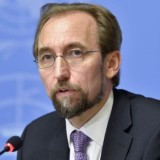
Zeid Ra’ad Al Hussein [former UN High Commissioner for Human Rights]
Prince Zeid Ra’ad Al Hussein is the former UN human rights chief, and is recognized world-wide as a leading and outspoken defender and promoter of universal human rights. He was awarded the Stockholdm priae for human rights in 2019 and the Tulip prize in 2019.
With a professional background as a practitioner – a former senior diplomat representing his country Jordan – his knowledge is steeped in the global security environment, stemming from over twenty years of direct exposure to many of the world's most turbulent crises and serious security threats. He served as president of the UN Security Council (in January 2014) and in 2002 was elected the first president of the governing body of the International Criminal Court (ICC) -- guiding the court's growth in its first three years (9/2002-9/2005). He chaired some of the most complex legal negotiations associated with the court's statute, in particular those relating to the elements of crimes (1999-2000) and the crime of aggression (the "supreme international crime") from 2009-2010. He also led the international community's efforts in countering the threat of nuclear materials being trafficked and then used maliciously by terrorists (2010-2014). And he led the UN's efforts at eliminating sexual exploitation and abuse in UN peacekeeping (2004-2007). He was twice served as Jordan’s ambassador to the United Nations (in New York) and once as Jordan’s ambassador to the United States (2007-2010). He also represented Jordan twice before the International Court of Justice (ICJ). From 1994-1996, he was a UN civilian peacekeeper with UNPROFOR. He has degrees from Johns Hopkins and Cambridge universities and is an Honorary Fellow of Christ’s College, Cambridge University.
Madhu Rajesh [Director, International Tourism Partnership]
Madhu began her career working in operations, sales and marketing across the Middle East, Eastern Europe and the UK for a range of hotel groups. She has spent the last decade working in the not-for-profit sector on a range of development issues including education, water & sanitation, sustainable cities and human rights. She joins ITP from WSUP (Water & Sanitation For Urban Poor) where she was Director for Partnerships & Development, before which she worked for The British Asian Trust, another Prince’s Charity.
Maria José Rienda [Executive Secretary of Ibero-American Sports Council and President, Spanish National Sport Council, Ministry of Sport and Culture, Government of Spain]
Former World Cup skier Maria José Rienda was named the new Spanish Secretary of State for Sport in June 2018. Rienda, who has participated in five Olympic Winter Games and seven FIS World Championships in Alpine Skiing, is the first lady to hold the position in Spain. The 43-year-old is the most decorated Spanish athlete in the Alpine circuit with 11 podiums, six of them victories in giant slalom in FIS World Cups and she competed in the sports structure of the Royal Spanish Winter Sports Federation for 19 years.
Rienda retired in 2011 and at the same time received the Gold Medal of the Royal Order of Sports Merit, granted by the Spanish Consejo superior de Deportes (Higher Sports Council). During the last four years she has maintained close contact with the RFEDI especially during the Sierra Nevada 2017 FIS Freestyle and Snowboard World Championships. Rienda has held the position of General Director of Activities and Sports Promotion of the Junta de Andalucía since 2015. She is also a member of the FIS Sub-Committee for Ladies’ Alpine Skiing.
David Russell [President, National Human Rights Commission of Northern Ireland]
David has been Chief Executive since April 2017. From 2009-2016 he also served as a Non-executive Director at the Northern Ireland Community Relations Council.
David has led the Commission’s duty to advise the United Kingdom government, Northern Ireland Executive and Assembly on matters affecting human rights in the jurisdiction. In addition, he has managed research and the exercising of investigatory powers on a diversity of social policy issues from emergency healthcare to racist hate crimes; the rights of nursing care home residents addressing the legacy of conflict. In 2008, he was engaged in drafting the Commission’s advice to the Secretary of State on a Bill of Rights for Northern Ireland. In 2010, he was similarly involved in the work of the Joint Committee of the National Human Rights Institutions on the island of Ireland to produce advice on a proposed Charter of Rights.
David has expertise assisting governments and National Human Rights Institutions working in societies facing significant constitutional reforms. This has included providing support to capacity building and governance programmes delivered in partnership with the United Nations, United Kingdom Foreign and Commonwealth Office, Commonwealth Secretariat and European Union.
From 2006-2009 David was Visiting Research Fellow at the School of Education, Queen’s University Belfast, and from 2002-2004 he was a Research Associate at the University of Oxford. He holds a PhD from the University of York, MA and BA Hons from Queen’s University Belfast.
Guy Ryder [Director-General, International Labour Organization]
Born in Liverpool (UK) in 1956, Guy Ryder studied Social and Political Sciences at the University of Cambridge and Latin American Studies at the University of Liverpool. He speaks French and Spanish as well as his mother tongue, English. He started his professional career in 1981 as assistant at the International Department of the Trade Union Congress in London.
From 1985, he held the position of Secretary of the Industry Trade Section of the International Federation of Commercial, Clerical, Professional and Technical Employees (FIET) in Geneva.
In 1988, Guy Ryder became Assistant Director and – from 1993 - Director of the Geneva office of the International Confederation of Free Trade Unions (ICFTU).
Guy Ryder first joined the International Labour Organization in 1998 as Director of the Bureau for Workers’ Activities and, from 1999, as Director of the Office of the Director-General. It was during this time that the ILO’s Decent Work Agenda was launched and won support from the international community.
In 2002, he was appointed General Secretary of the ICFTU, leading the process of global unification of the democratic international trade union movement. He was elected as first General Secretary of the International Trade Union Confederation (ITUC) when it was created in 2006. He headed international trade union delegations to high level talks with the UN, IMF, World Bank and WTO and to the G20 Leaders’ Summits.
In September 2010, Guy Ryder came back to the ILO in Geneva as Executive Director, responsible for international labour standards and fundamental principles and rights at work. Among other activities, he supervised the application of ILO Conventions and Recommendations. He also headed several high-level ILO missions to address a range of issues related to labour standards in countries such as Bahrain, Colombia, Fiji, Georgia, Greece, Myanmar and Swaziland.
Guy Ryder was elected as ILO Director-General by the ILO's Governing Body in May 2012 and took office on 1 October 2012. On taking office, he pledged to position the Organization as a determined actor translating principle into action and ensuring that it had the capacity to make a major difference to the working lives of people on all of the continents. To support this he launched a major reform process geared to assuring the ILO’s authority on matters falling within its mandate.
Guy Ryder was re-elected as ILO Director-General by the ILO's Governing Body on 7 November 2016 with overwhelming support across the ILO's tripartite constituency. His second term started on 1 October 2017.
Jeffrey Schlagenhauf (Deputy Secretary-General, Organisation for Economic Security and Development)
Mr. Jeffrey Schlagenhauf, an American national, took up his duties as a Deputy Secretary-General of the OECD at the beginning of May 2019.
Prior to joining the OECD, Mr. Schlagenhauf served as the White House’s Office of Management and Budget’s (OMB) Associate Director for Economic Policy. In that role, he served as the top economic advisor to the Director. Mr Schlagenhauf represented OMB in the “Troika” process that determined the economic assumptions underlying the Administration’s annual budget. As head of the Economic Policy Division, he supervised a team of career economists and the Evidence Team that focuses on implementing evidence‑based policymaking across the U.S. federal government.
Before joining the White House Budget Office, Mr Schlagenhauf worked in the public policy arena for nearly four decades. He served for more than a decade as a senior staff member of the Congressional Joint Economic Committee, including serving as the committee’s Executive Director and Republican Staff Director. Mr. Schlagenhauf also served as a senior staff member in both the U.S. Senate and the U.S. House of Representatives, including serving as Chief of Staff to U.S. Representative Thomas J. Bliley, Jr. of Virginia.
Mr. Schlagenhauf’s nongovernmental experience included serving as President of a national trade association, a private consultant, and as an Economic Policy Advisor to the Donald J. Trump for President campaign in 2016.
Mr Schlagenhauf was born and raised in Western New York. He remains a diehard fan of both American football’s Buffalo Bills and hockey’s Buffalo Sabres.
Mr. Schlagenhauf is a graduate of the College of William and Mary in Virginia. In 1998, he was appointed by the Governor of Virginia to serve as a member of the university’s Board of Visitors.
Silas Sinyigaya [Vice Chairman, National Human Rights Commission of Rwanda]
Silas SINYIGAYA is currently the Vice Chairperson of the National Commission for Human Rights of Rwanda. Prior to that, he was the Executive Secretary of Rwanda Civil Society Platform (RCSP). Here, he worked to ensure that Human Rights were mainstreamed in the country’s development programs as a member of the Steering Committee of the National Strategy for transformation (NST1), the Vision 2030 and the Government’s 7-year Program.
Being in the roaster of consultants of the African Union (AU) for the Democratic Governance cluster, Mr SINYIGAYA has taken part in AU missions for the evaluation of Senegal (2016) and Ivory Cost (2018), in the framework of the African Peer Review Mechanism (APRM).
Furthermore, Mr Sinyigaya represented Rwanda at the International Conference on the Great Lakes Region (ICGLR), a Burundi based Intergovernmental Organization with 12 Member States. Here, he was in charge of human rights on the regional level as a Democracy and Good Governance Director.
Before working for ICGLR, he was the Executive Secretary of the Umbrella of the human rights organizations (CLADHO) in Rwanda. He has more than 20 years working in institutions promoting and protecting human rights.
He speaks fluently Kinyarwanda (native language), French, English and Swahili.
Aaron Smith [Young Ambassador, Commonwealth Sport Northern Ireland]
Aaron is a Young Ambassador within Northern Ireland’s Together: Building United Communities programme, which is facilitated by the Department for Communities, the Dame Kelly Holmes Trust and PeacePlayers NI. The programme provides support for young people to develop their skills and career opportunities, while becoming ambassadors for good relations in their own community. He has been involved with Co-Operation Ireland in cross-border and cross-community projects as well as attending European Democratic Action Week, meeting young people from across Europe to discuss sustainability, arts and sport. An advocate for the empowerment of young people and the role that they can play within their local communities, and globally, while developing and understanding methods of peaceful protest to voice the concerns of young people. Aaron played a key role in a recent initiative which used sport and human rights to connect young people from Northern Ireland and Rwanda.
Matthias Thorns [Deputy Secretary-General, International Organisation of Employers]
Matthias Thorns is the Deputy Secretary-General at the International Organisation of Employers (IOE) in Geneva.
Prior to the IOE, Matthias was International Labor Relations and Workplace Rights Manager at The Coca-Cola Company, Deputy Director, European and International Affairs, Confederation of German Employers (BDA) in Berlin, and an Advisor at the European and International Affairs, Confederation of German Employers (BDA). He was also an advisor for social affairs at Businesseurope in Brussels.
Matthias gained his degree in history and philosophy at the Universities of Hannover and Bristol and his postgraduate at the the University of Hannover.
Anne Tiivas [Chair, Safe Sport International]
Anne is the former Director of the National Society for the Prevention of Cruelty to Children [NSPCC] Child Protection in Sport Unit where she worked for nearly 18 years until September 2019. Co-funded by the National Society for the Prevention of Cruelty to Children and Sport England, Sport NI, UK Sport and Sport Wales. She has been centrally involved in shaping and monitoring National Safeguarding Standards for Children in Sport in the UK since 2001 and in developing the new International Safeguards for Children in Sport [working with UNICEF UK as a founder member of the International Safeguards for Children in Sport Founders group]. In 2016 the Child Protection in Sport Unit was awarded the Unicef International Safeguarding Children in Sport award at the Beyond Sport Summit.
Anne has recently appointed as chair of the International Safeguards for Children in Sport Advisory Group, having been a founder member of the initiative to create the Safeguards in collaboration with UNICEF, Brunel University and other sports bodies since 2012. Anne is a member of FIFA’s Expert group on Child Safegaurding’. Anne advises a number of international groups on child protection and safeguarding in sport , including Panathlon International [member of the Scientific and Cultural Committee] and is frequently called on to help with policy development overseas. She has recently been part of several European Union projects on safeguarding in Youth sport and elite youth sport that cross more than a dozen European Member States. These include ‘Safeguarding youth Sport’ led by the ICES and the ‘Sport Respects Your rights’ initiative co-ordinated by Edgehill University.
Anne has worked with the IOC on several projects in recent years and is co-author of the most recent ‘IOC Consensus Statement: harassment and abuse [non-accidental violence] in sport’. She has written widely on the topic of abuse of children in sport and is co-author of a new chapter in the 2017 Oxford Textbook of Children’s Sport and Exercise Medicine -Protecting child athletes from medical mismanagement and other forms of [non-accidental] violence in sport.
Anne is Chair and Director of Safe Sport International.
Tatiana Valovaya [Director-General of the United Nations at Geneva]
United Nations Secretary-General António Guterres announced on 30 May 2019 the appointment of Tatiana Valovaya of the Russian Federation as Director-General of the United Nations Office at Geneva. She succeeds Michael Møller of Denmark.
Ms. Valovaya brings to the position over 35 years of extensive experience in journalism, diplomacy and government service. She is most recently Member of the Board and Minister in charge of integration and macroeconomics of the Eurasian Economic Commission, the executive body of the Eurasian Economic Union (EEU) which is responsible for implementing decisions, upholding the EEU treaties and managing the day-to-day business of the Union.
She began her career with the Government of the Russian Federation in 1989 and served in various capacities, including as the Third and Second Secretary at the Russian Permanent Mission to the European Union in Brussels (1989-1994) and Deputy Director and subsequently Director of the Department of International Cooperation of the Russian Federation (1999-2012). Before joining the Government of the Russian Federation, she worked as a reporter to “The Economic Gazette” in Moscow (1983-1989).
Ms. Valovaya graduated from the Department of International Economic Relations of the Moscow Financial Institute, holds a Ph.D and a Doctorate of Economic sciences from the State Financial Academy, Moscow. She has written extensively on international monetary relations, European economic integration and economic cooperation with Member States of the Commonwealth of Independent States.
Minky Worden [Director of Global Initiatives, Human Rights Watch]
As Human Rights Watch's Director of Global Initiatives, Minky Worden develops and implements international outreach and advocacy campaigns. She previously served as Human Rights Watch's Media Director, working with the world’s journalists to help them cover crises, wars, human rights abuses and political developments in some 90 countries worldwide. Worden has taught as an Adjunct Associate Professor at Columbia University’s School of International and Public Affairs (SIPA) since 2013. Before joining Human Rights Watch in 1998, Worden lived and worked in Hong Kong as an adviser to Democratic Party chairman Martin Lee and worked at the Department of Justice in Washington, D.C. as a speechwriter for the U.S. Attorney General and in the Executive Office for US Attorneys. A member of the Council on Foreign Relations, Worden speaks Cantonese and German, and is an elected member of the Overseas Press Club's Board of Governors. She is the editor of The Unfinished Revolution (Seven Stories Press, 2012) and China's Great Leap (Seven Stories Press, 2008), and the co-editor of Torture (New Press, 2005).
Ambet Yuson [General Secretary, Building and Wood Workers’ International]
Ambet Yuson is the General Secretary of the Building and Wood Workers’ International (BWI), a global union federation headquartered in Geneva, Switzerland, representing 12 million workers in 135 countries. He is also the Chair of the Council of Global Unions Working Group on Migration. Previously, Ambet held several posts in BWI, including Regional Representative for the Asia Pacific Region from 2007 to 2009 and Educational Secretary at BWI headquarters from 2002 to 2006.
Before joining BWI in 1997, Ambet started as community organiser and labour educator to various trade unions and grassroots organisations; and later served as General Secretary to the National Peace Conference (NPC), a multi-sectoral coalition of people’s organisations, trade unions and civil society organisations in the Philippines advocating for genuine peace and social reform agenda. He participated in the 1980s democratic movement against the Marcos dictatorship and “People Power/ EDSA Revolution of 1986” that ultimately ended this dictatorship. These experiences galvanised his belief in the power of international solidarity and collective action.

